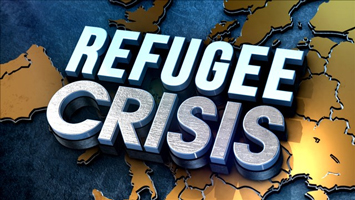Refugee crisis may threaten development aid to world’s poor
By Thalif Deen | Last updated: Nov 17, 2015 - 7:20:21 PMWhat's your opinion on this article?

|
Secretary Ban’s appeal came two days after a U.N. pledging conference reported a “dramatic decline” in donor commitments: from $560 million in 2014 to $77 million in the most recent pledges, largely covering 2015.
Asked if the secretary-general’s appeal was the result of the decline in commitments, U.N. Deputy Spokesman Farhan Haq told IPS: “It’s in response to many factors, including concerns expressed by some states about maintaining aid levels.”
The secretary-general said resources for one area should not come at the expense of another.
Redirecting critical funding away from development aid at this pivotal time could perpetuate challenges that the global community has committed to address, he warned.
“Reducing development assistance to finance the cost of refugee flows is counter-productive and will cause a vicious circle detrimental to health, education and opportunities for a better life at home for millions of vulnerable people in every corner of the world,” Secretary Ban declared.
At a summit meeting of political leaders from Europe and Africa in Malta Nov. 11, the European Union (EU) was expected to announce plans to create a Special Trust Fund, initially estimated at $1.9 billion, to address the financial problems arising out of the refugee crisis.
Since European countries are expected to boost this fund over the next few months, there are fears these contributions may be at the expense of development assistance.
According to figures released by the Paris-based Organization for Economic Cooperation and Development, development aid flows were stable in 2014, after hitting an all-time high in 2013.
But aid to the poorest countries continued to fall, according to official data collected by the OECD Development Assistance Committee.
Net official development assistance from Development Assistance Committee members totaled $135.2 billion, with a record $135.1 billion in 2013, though marking a 0.5 percent decline in real terms.
The secretary-general said that with the world facing the largest crisis of forced displacement since the Second World War, the international community should meet this immense challenge without lessening its commitment to vitally needed official development assistance.
He underscored the importance of fully funding both efforts to care for refugees and asylum seekers in host countries as well as longer-term development efforts.
The secretary-general said he recognized the financial demands faced by host communities and partner governments as they seek to support the international response.
He expressed his “sincere gratitude to governments and their citizens for their generosity.”
Nick Hartmann, director of the Partnerships Group at U.N. Development Program (UNDP), told delegates the important agreements that member states had come to in 2015 called for increased policy support.
To deliver that, adequate and predictable resources were required.
He said core resources were the foundation of UNDP’s support to the poorest and most vulnerable.
UNDP, he pointed out, had responded to a range of crises over the past year and had ensured that 11.2 million people benefited from improved livelihoods. Almost a million jobs were created in 77 countries, with half of those reaching women.
“However,” he said, “reduced contributions from many top partners and unfavorable exchange rate movements had caused a downward trend in funding.”
Mr. Hartmann said a number of partners faced overwhelming pressures, including the migrant crisis; he thanked those who had submitted pledges at the Nov. 9 pledging conference.
The UNDP is described as the U.N.’s global development network covering 177 countries and territories.
INSIDE STORIES AND REVIEWS
-
-
About Harriett ... and the Negro Hollywood Road Show
By Rabiah Muhammad, Guest Columnist » Full Story -
Skepticism greets Jay-Z, NFL talk of inspiring change
By Bryan 18X Crawford and Richard B. Muhammad The Final Call Newspaper @TheFinalCall » Full Story -
The painful problem of Black girls and suicide
By Charlene Muhammad -National Correspondent- » Full Story -
Exploitation of Innocence - Report: Perceptions, policies hurting Black girls
By Charlene Muhammad -National Correspondent- » Full Story -
Big Ballin: Big ideas fuel a father’s Big Baller Brand and brash business sense
By Bryan Crawford -Contributing Writer- » Full Story






 Click Here Stay Connected!
Click Here Stay Connected!








